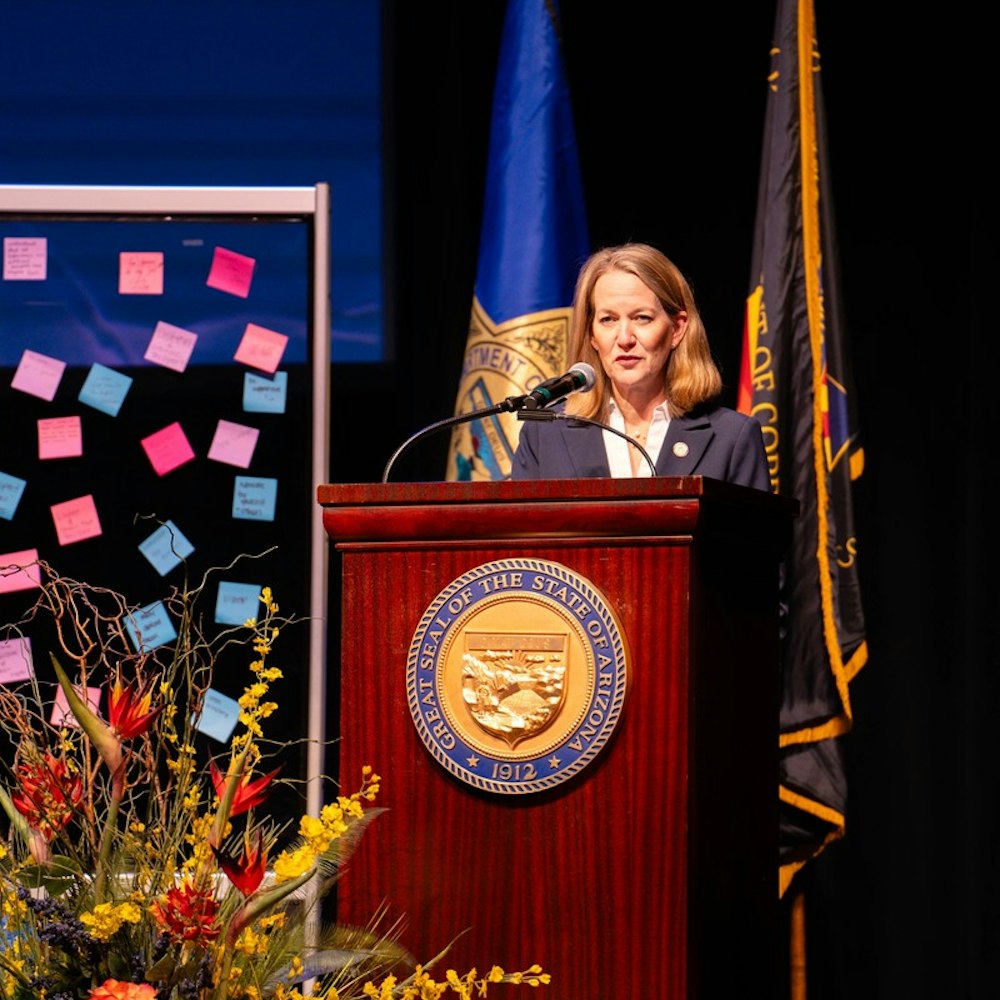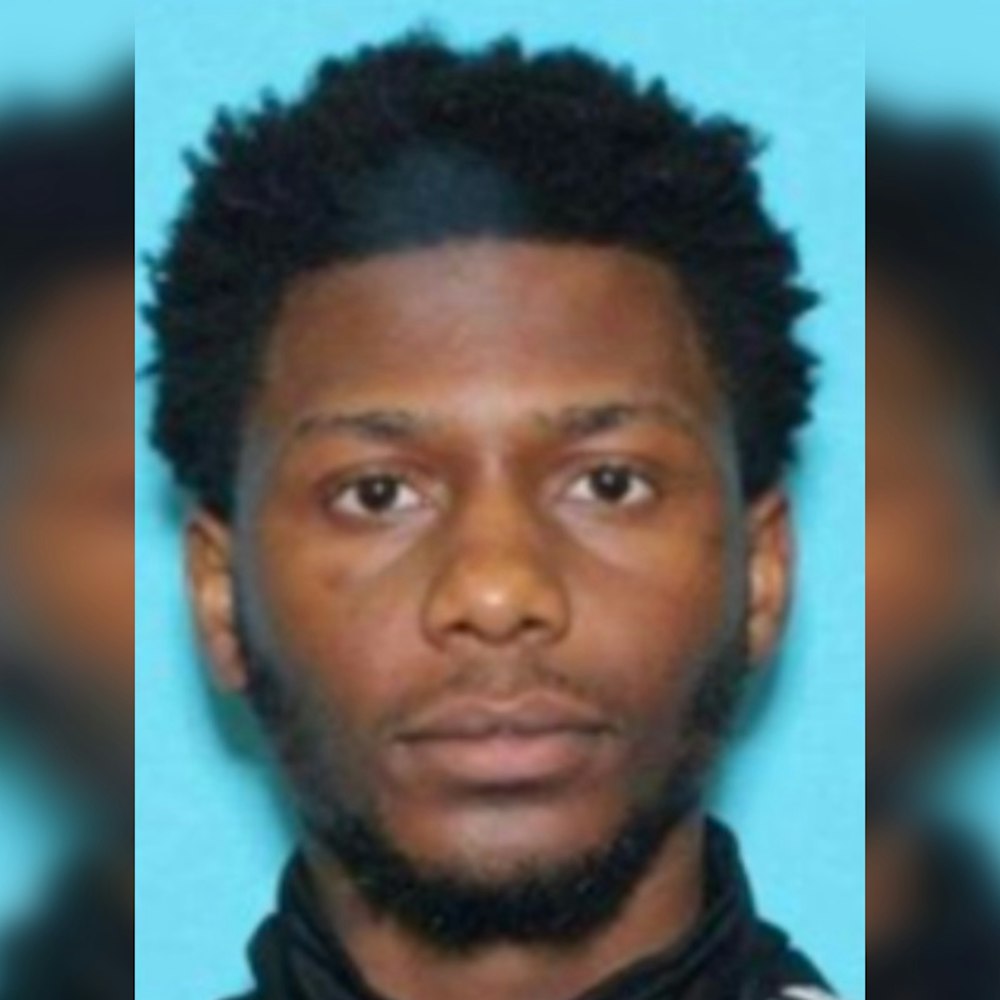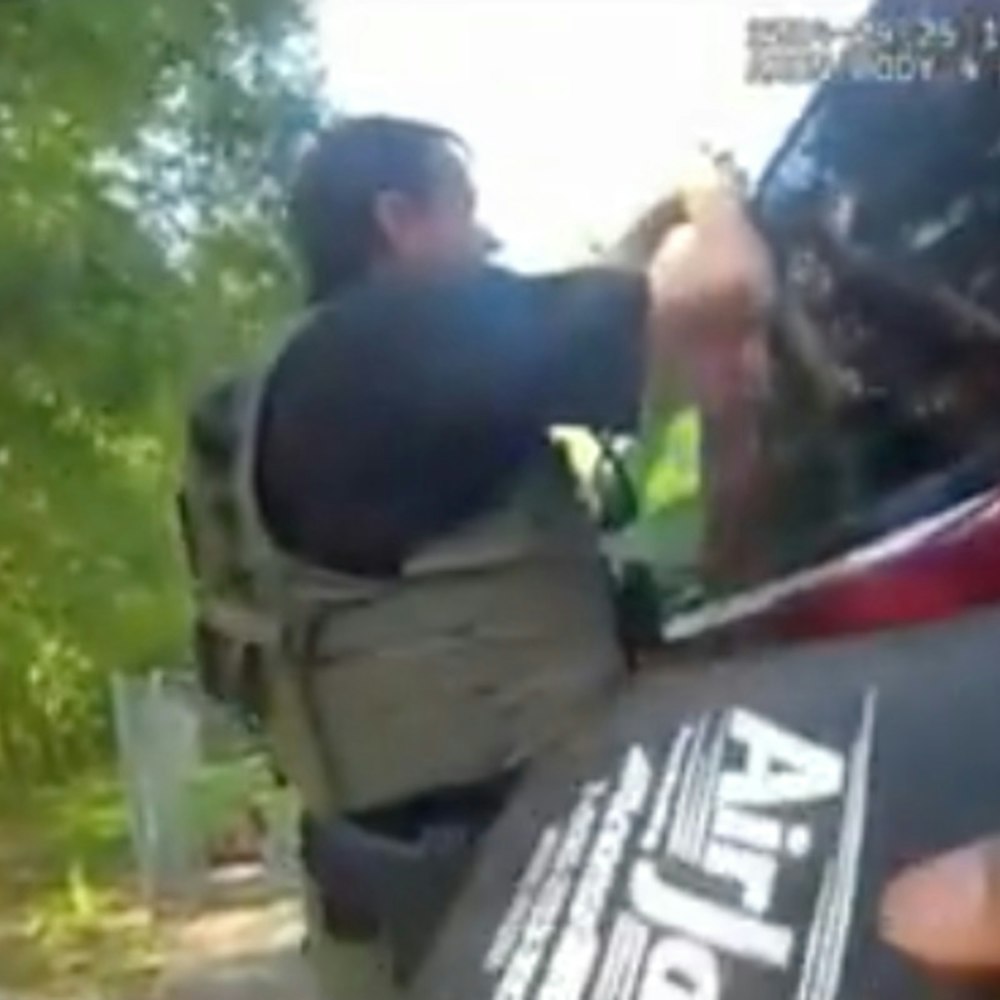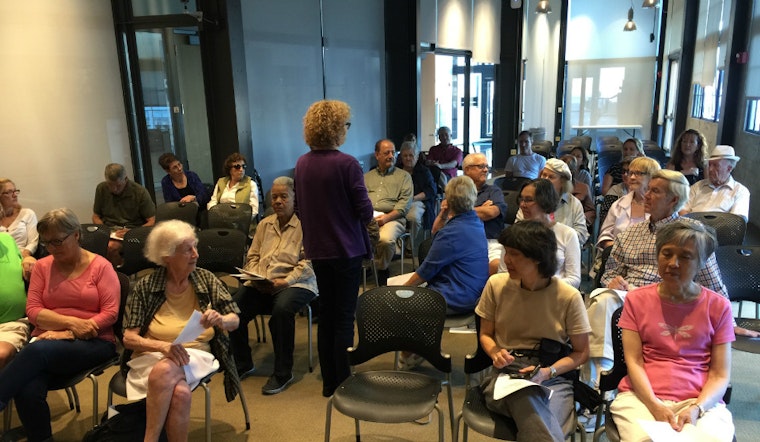
Frustrations boiled over Monday night at a neighborhood watch meeting for the Gateway Apartments and Townhomes, as residents shared stories of robberies, auto break-ins, bicycle chop shops and other crime and safety concerns in the area.
Sue Rokaw of the Golden Gateway Tenants Association organized the meeting, which was held at the Port of San Francisco offices at Pier 1. Irina Chatsova of San Francisco SAFE facilitated, often having to interrupt attendees who gave emotional speeches telling of their experiences and asking for something to be done.
Guest speakers included Rann Parker of the San Francisco Homeless Outreach Team (SFHOT) and Lt. Michael Serujo of SFPD Central Station, and representatives from Gateway management: Jose Angulo, operations manager, and Clarisse Tan, director of property management.
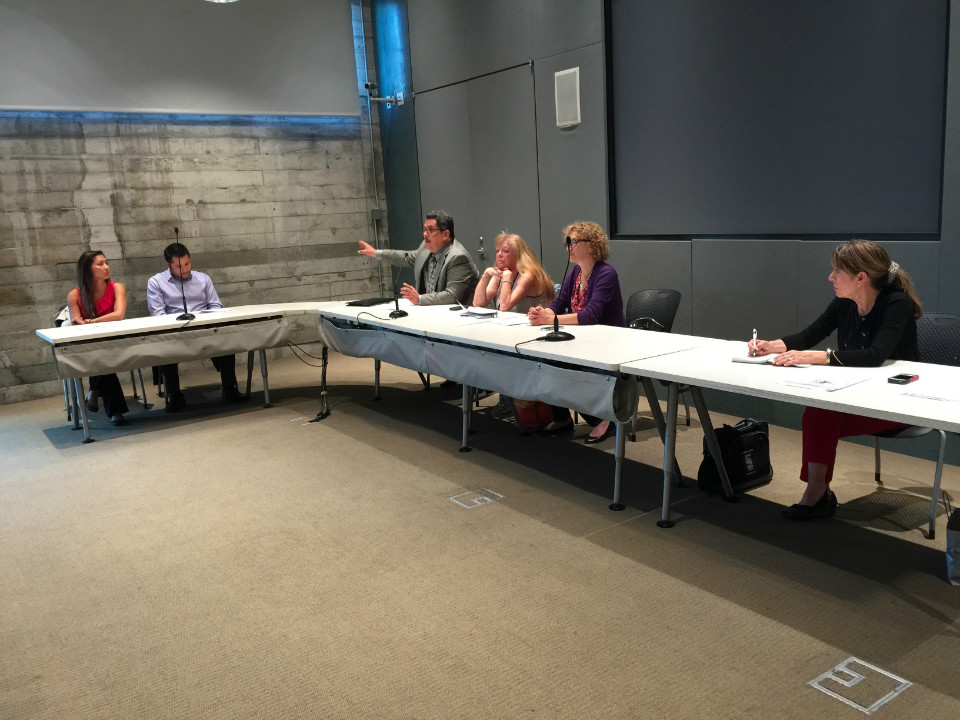
From left: Tan, Angulo, Serujo, Parker, Chatsova and Rokaw.
To begin the meeting, Chatsova asked each of the few dozen audience members to introduce themselves. Many said they'd been residents for 11, 12, 25, 27 and even 30 years. She then revisited the outcome of the June 30th meeting, which prioritized homeless issues and people "tailgating" into the Gateway's secure buildings by entering as someone else is coming or going.
Parker talked about SFHOT's mission, which used to be finding housing. "When we started out, we had places to send people," she said, such as SROs. Right now, they don't have housing to place them into, so they help "with their benefits, medical issues, companion animals."
SFHOT has changed to a "street medicine approach"—it's mapped out homeless encampments, and has nurses, social workers and clinics on the street to help and stabilize the medically and psychologically frail, the elderly, people who've been on the street more than 10 years, and others at risk. An important new addition is the Mission's Navigation Center, which the city is talking about replicating in other areas. "If you call and say why can’t you get this person who’s on my corner into the Navigation Center, there is a process," Parker said.
Parker also discussed the Homeward Bound program. Started by Central Station Capt. David Lazar earlier in his career, Homeward Bound offers a homeless person a bus ticket back to friends or family who agree to take them in. It has helped 9,300 people, and recidivism is less than three percent, she said. Parker distributed cards with the phone number for SFHOT, (415) 355-7555, and her number, (415) 760-8132, and email: Rann.Parker [at] sfdph [dot] org.

One man in the audience asked if it was illegal to camp in the park overnight, and if so, why it wasn't being enforced. He also asked why public officials weren't being jailed for failing to enforce the law.
"We can’t, for the most part, at most stations, we can’t keep officers there all night long," said Lt. Serujo. "They are cited, and where we can, we will book them. It’s a citable offense. We can’t arrest them. As far as officials being cited or arrested, I can’t answer that."
"It seems to me homelessness is a big business," said another audience member, telling Parker that "you can talk the talk, but you’re not walking it." Chatsova stepped in: "We are not here to make any assumptions or finger-point."
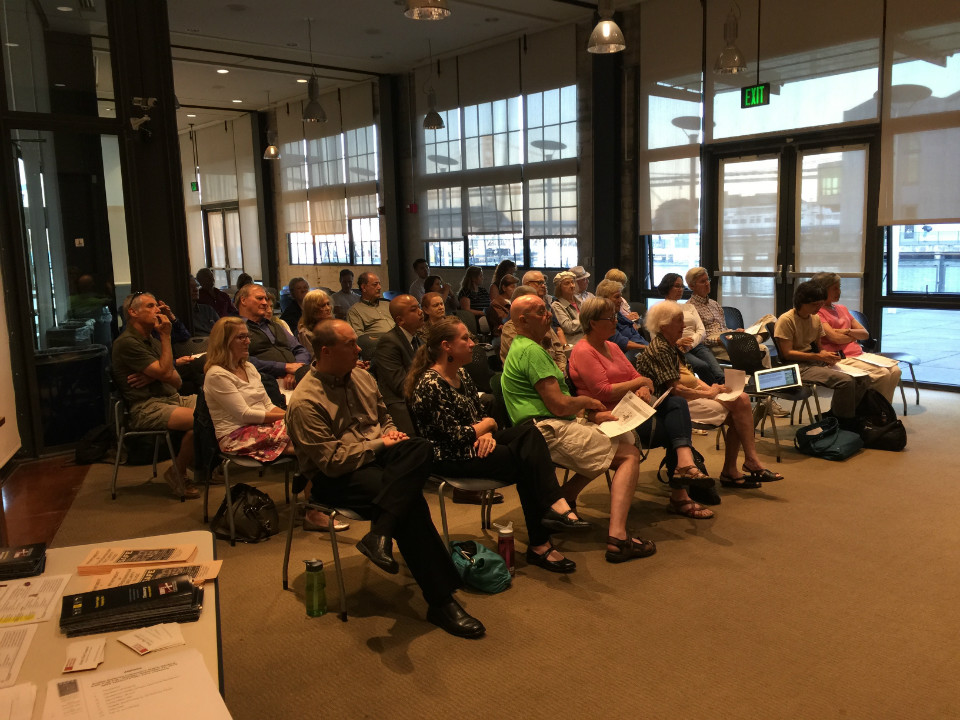
A woman stood up to say the reason San Francisco has so many homeless people is because it offers the highest general assistance in the United States. "We don't have general assistance represented here," Chatsova replied. Two different people asked why Mayor Ed Lee was working on relocating the homeless during Super Bowl 50, but could not do so permanently. "Why can’t we do something every day and not just [for the] Super Bowl?" one said. Parker told him to email her so she could pass his concerns along to the outreach team.
Another man stood up to say he invited District 3 Supervisor Julie Christensen and Aaron Peskin, candidate for District 3 supervisor, to the meeting, but didn't hear back. (Both candidates were at the Middle Polk Neighborhood Association candidates' debate that night.) Christensen's office did send a legislative aide, Mason Lee, who later asked everyone to send their comments and concerns to the supervisor's office (julie.christensen [at] sfgov [dot] org).
"We recognize we need to connect these homeless residents with services," Lee said. "The supervisor is working hard to have a Navigation Center in the district, so there will be more resources in the district as well." Chatsova said the group should put in its "action items" to mail a letter to the supervisor, and copy the Mayor's Office of Neighborhood Services.
One woman introduced herself by saying she is compassionate because she spends "an inordinate amount of time working with foster children" and the Boys' & Girls' Club. She said the neighborhood has been filthier than ever in the past couple of months. "One has to question whether we’re safe."
"It’s disgraceful that we as a society allow these people who are clearly mentally ill to be out roaming around. We need to do something and we need to do something quickly," she said. Within less than 50 yards of the Sue Bierman Park Playground, she said, "we have what appear to be bicycle chop shops. It’s not acceptable. It has to go, and if it can go for the Super Bowl, it can go now.” A round of applause ensued.

Sue Bierman Park Playground.
Parker explained that SFHOT volunteers are not sworn officers, and are limited in what they can do. She said a team from Fisherman's Wharf will be coming south toward the Gateway area soon. When Chatsova asked the audience how many people had ever called SFHOT, only one hand went up, and some said they'd never heard of it. Others said in all of their years at the Gateway, they'd never seen anyone come in a van to assist or pick up the homeless.
Lt. Serujo said when police get a call about a homeless person, they can take the person to a psychiatric center, but then it's up to the doctors on how long they're held. "They have their own rules and guidelines they go by," he said. In regards to chop shops, he said if they're reported, SFPD will go run the serial numbers on all of the bikes, and if people register their serial numbers, they can get the bikes back. "We’re getting bikes back to the owner more often than we used to," he said. Chatsova reminded the audience of the SAFE Bikes program for registration, which is only about a year old.
Another big concern for the group was the constant rash of auto break-ins along Washington Street between the Embarcadero and Drumm Street. Lt. Serujo said Central Station has been putting up signs near Lombard Street to tell drivers not to leave anything in their cars, and he will tell Capt. Lazar that neighbors would like to see them along Washington as well. Two audience members said more SFPD foot patrols are needed in the area.
“We have two sergeants and six officers that do nothing right now but car break-ins,” Lt. Serujo said. “It’s a tremendous crime in this district, and it’s out of control.” He said the station has made more than 130 arrests this year, including eight in the past two weeks. Lee added that Christensen is working with SFPD on identifying "hot spots" for break-ins, and "the unit block of Washington is on the radar."
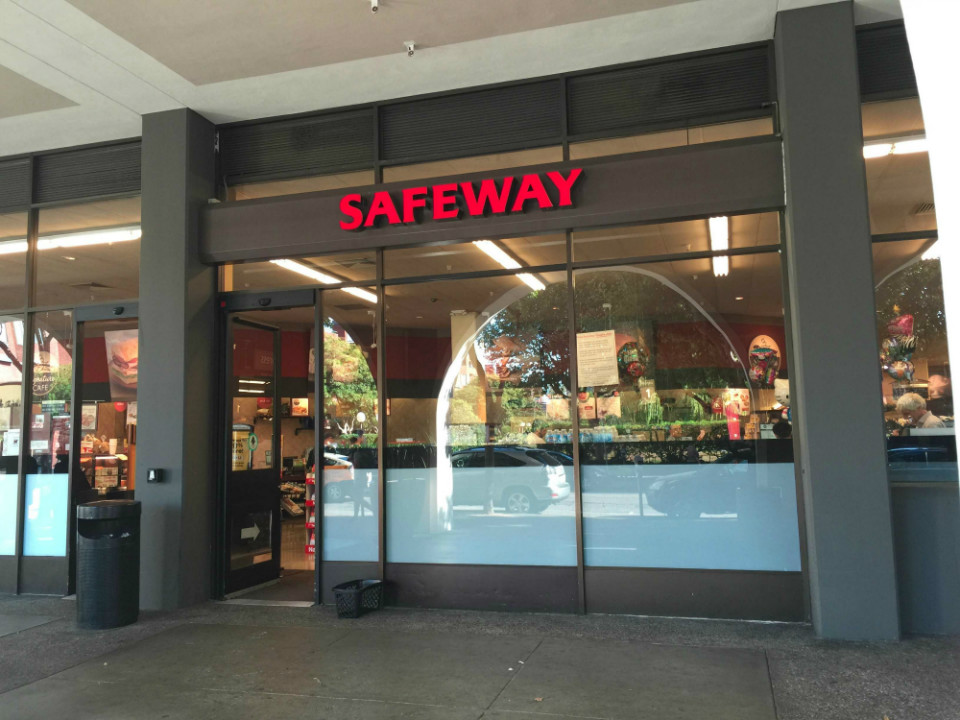
The Safeway at 145 Jackson St. has also been a sore spot for some neighbors, due to ongoing shoplifting and safety concerns. Lee said that Christensen has spoken with a regional manager to identify ways to make the store "less enticing" for thieves. In a separate interview with Christensen, she told us she's setting up a walk-through with Safeway's shoplifting consultants and "pushing them to make changes to discourage shoplifting."
Other questions included when citizens have the right to defend themselves (yes, but once the threat is gone, you must stop), whether they should try to apprehend a criminal (never) and what, exactly, the city is planning to do during Super Bowl week (Chatsova and Lee said they'd research it and get back to the group).
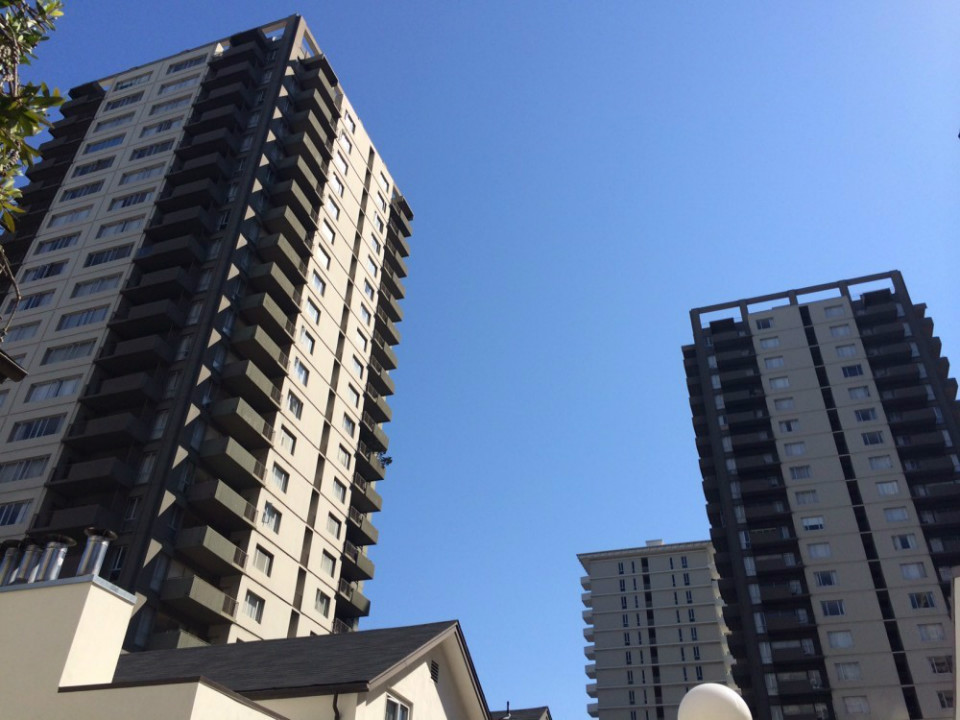
The Gateway Apartments and Townhomes.
The rest of the meeting centered on issues specific to the Gateway, including how to prevent non-residents from "tailgating." Someone asked what to do if they see a person tailgate, and Angulo said to call the office immediately and ask for assistance. An idea was floated to post signs at all building entrances that would specify no entry for non-tenants. Attendees were also reminded to never let anyone in who's not a resident.
People also asked about cameras at the Gateway, which Angulo said are installed at the building and garage entrances and on the roof, but not on every floor or in every corridor. He said management is budgeting to add more. "I live in five cities at one time. The worst security I’ve encountered is the Gateway," said a man in the audience. "You should have a camera in every elevator at the entrance of every staircase." He also called for putting up bright lights. Chatsova said SAFE conducts security assessments, and can give recommendations on camera placements if people want to install them in their units.
Another person asked about installing gates to the third-floor plaza level common areas between the buildings, which have been public-access since the complex was built in the 1960s. "We have discussed that with the city and the Fire Department," Angulo said. "There are some issues with that, but we are looking into installing gates there." Tan said there is a plan potentially in the works for next year, but they'll need residents' support to persuade the city to allow it. There was also discussion about security issues stemming from outside staircases.
"Everyone is very passionate about the issues we discussed and we’ll continue to learn about more solutions, more resources available," Chatsova said. Lt. Serujo then promised to pass along all of the information to Capt. Lazar, and Angulo said the next Gateway rent statement will include a list of phone numbers and resources.

